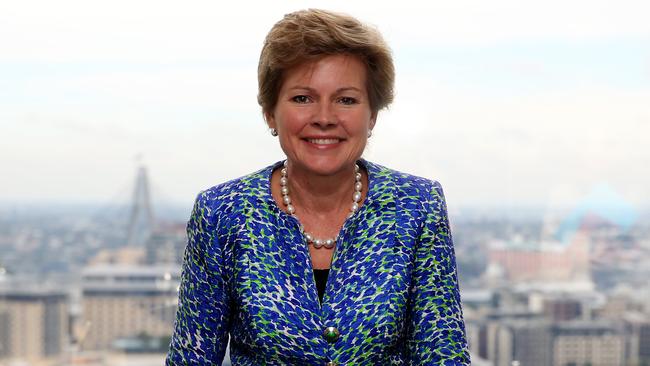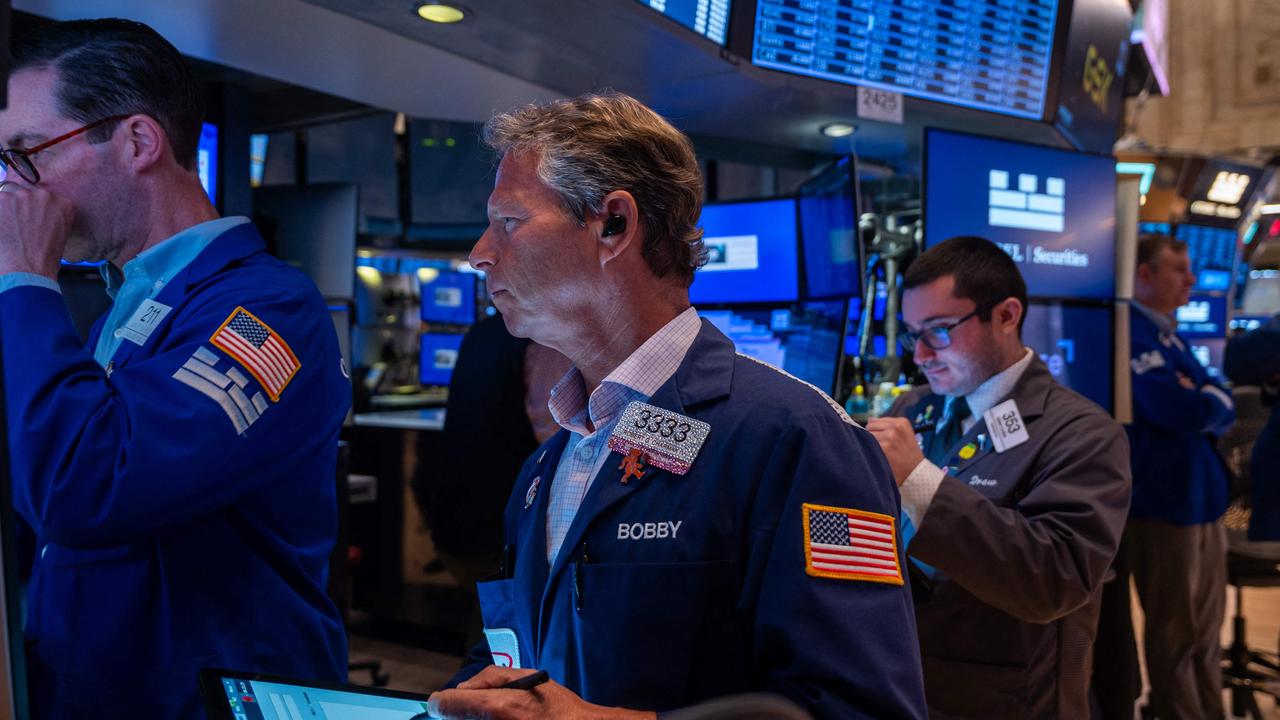Westpac loans holding strong, says banking chief Lyn Cobley
Westpac executive Lyn Cobley says she’s “comfortable” with the health of the loan book after a bumpy year.

Westpac institutional banking chief Lyn Cobley says she’s “comfortable” with the health of the loan book after a bumpy year, claiming many customers were successfully transforming their operations with help from a weaker currency and higher commodity prices.
As Westpac prepares to rule off its books for the year to September 30, Ms Cobley told The Australian that despite the institutional banking industry going through “challenging times”, the bank’s loans were holding strong.
“We stress test our portfolio all the time and are pretty comfortable with the credit quality as it stands,” she said, noting improved commodity markets that have pushed iron ore from $US40 a tonne in January to $US55.
In the first half, Westpac’s profit was impacted by $667 million in bad debt charges, up 96 per cent on the prior corresponding half as the institutional division suffered four large client exposures that went south and required $252m of provisions.
It resulted in a $178m impairment charge for Ms Cobley’s division, which suffered a 21 per cent fall in profit to $517m.
While Westpac didn’t name troubled customers, UBS suggested the bank was exposed to troubled companies Arrium, Slater & Gordon, Peabody Coal, the Wiggins Island Coal Export Terminal and McAleese.
But analysts welcomed Westpac’s conservatism in recognising exposures as being impaired and provisioning for them, potentially reducing the group’s bad debt charge in the second half.
Ms Cobley, who took the reins from Rob Whitfield a year ago, said companies in the tourism, education and health sectors were benefiting from the free-trade agreement with China and the lower dollar.
She added there had been a clean out of many smaller miners while larger companies like Fortescue Metals were reaping the benefits of cost cutting.
National Australia Bank chief Andrew Thorburn also recently claimed that despite pressure in states like Western Australia, asset quality was holding up well.
“Most of the customer meetings I have, people are talking about transformation, how do we either interact with customers in a different way and how they’d like us to,” Ms Cobley said, citing technology and data analytics.
“And also people looking about how they can take costs out and be more efficient. I think we’re beginning to see some more corporate activity coming through.”
But capital expenditure and confidence remained soft among large corporates, despite low interest rates and positive signals about the economy like the recent GDP data showing annual growth of 3.3 per cent.
She said muted demand for loans meant her team can’t just be “transaction bankers any longer”, needing instead to be partners with clients and offer insights and new services.
While claiming not to have a job reduction program despite several reports of losses, Ms Cobley said she had changed the institutional division’s operating model to be more customer focused. This meant shrinking the number of sales, analytics and services teams to reduce costs, plus adding new digital services such as “Loan IQ” so clients can vary loan facilities via their mobile phone.
“For the 12 months I’ve been here, we’ve been very focused on being very disciplined about the business we write, the way we run our business, return on equity, expense management and the customers first and foremost,” she said. “And what we’ve seen with our peers is quite a varied approach.”
In the past year, ANZ — the biggest institutional player by profits — has shrunk assets, NAB has reorganised reporting structures while Commonwealth Bank has beefed up lending before recently pulling back.
Ms Cobley said while competition from Chinese, Japanese and Korean banks was intense, foreign banks had historically often competed hard before pulling back, citing European banks after the global financial crisis.
“We just watch this and just continue to do what we do best and participate where it makes sense. People know we’re here, we’re always going to be here,” she said.



To join the conversation, please log in. Don't have an account? Register
Join the conversation, you are commenting as Logout